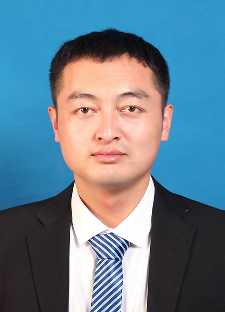代表性论著
1. Guoqiang Tan, Guoqiang Tan, Zhanshan Wang*. Stability analysis of recurrent neural networks with time-varying delay based on a flexible negative-determination quadratic function method. IEEE Transactions on Neural Networks and Learning Systems, 36(1), 1933-1938, 2025.
2. Guoqiang Tan, Zhanshan Wang*, Zhan Shi. Proportional-integral state estimator for quaternion-valued neural networks with time-varying delays. IEEE Transactions on Neural Networks and Learning Systems, 34(2), 1074-1079, 2023.
3. Guoqiang Tan, Zhanshan Wang*. Reachable set estimation of delayed Markovian jump neural networks based on an improved reciprocally convex inequality. IEEE Transactions on Neural Networks and Learning Systems, 33(6): 2737-2742, 2022. (ESI高被引论文)
4. Jinxing Hu, Pengqian Yan, Guoqiang Tan*. Spatiotemporal dependence modeling of wind speeds via adaptive-selected mixture pair copulas for scenario-based applications. Renewable Energy, 244, 122650, 2025.
5. Guoqiang Tan, Zhanshan Wang*. Generalized dissipativity state estimation of delayed static neural networks based on a proportional-integral estimator with exponential gain term. IEEE Transactions on Circuits and Systems II: Express Briefs, 68(1): 356-360, 2021. (ESI高被引论文)
6. Jinxing Hu, Guoqiang Tan*, Lei Liu. A new result on H∞ state estimation for delayed neural networks based on an extended reciprocally convex inequality. IEEE Transactions on Circuits and Systems II: Express Briefs, 71(3), 1181-1185, 2024. (ESI高被引论文)
7. Guoqiang Tan, Zhanshan Wang*. Further result on H∞ performance state estimation of delayed static neural networks based on an improved reciprocally convex inequality. IEEE Transactions on Circuits and Systems II: Express Briefs, 67(8): 1477-1481, 2020.
8. Guoqiang Tan, Zhanshan Wang*, Cong Li. H∞ performance state estimation of delayed static neural networks based on an improved proportional-integral estimator. Applied Mathematics and Computation, 370: 124908, 2020. (ESI高被引论文)
9. Guoqiang Tan, Wen-Hua Chen*, Jun Yang, Xuan-Toa Tran, Zhongguo Li. Dual control for autonomous airborne source search with Nesterov accelerated gradient descent: Algorithm and performance analysis. Neurocomputing, 630, 129729, 2025.
10. Guoqiang Tan, Zhanshan Wang*, Shasha Xiao. Nonfragile extended dissipativity state estimator design for discrete-time neural networks with time-varying delay. Neurocomputing, 539, 126206, 2023.
11. Guoqiang Tan, Zhanshan Wang*. Extended dissipativity state estimation for generalized neural networks with time-varying delay via delay-product-type functionals and integral inequality. Neurocomputing, 455: 78-87, 2021.
12. Guoqiang Tan, Zhanshan Wang*. α2-dependent reciprocally convex inequality for stability and dissipativity analysis of neural networks with time-varying delay. Neurocomputing, 463, 292-297, 2021.
13. Guoqiang Tan, Jidong Wang, Zhanshan Wang*. A new result on L-2–L∞ performance state estimation of neural networks with time-varying delay. Neurocomputing, 398: 166-171, 2020.
14. Guoqiang Tan, Zhanshan Wang*. Design of H∞ performance state estimator for static neural networks with time-varying delay. Neurocompting, 364: 203-308, 2019.
15. Guoqiang Tan, Zhanshan Wang*. H∞ performance analysis for delayed Markovian jump neural networks via the Lyapunov-Krasovskii functional with delay-product-type terms. Journal of the Franklin Institute, 358(16): 8609-8624, 2021.
16. Guoqiang Tan, Zhanshan Wang*. Stability analysis of systems with time-varying delay via a delay-product-type integral inequality. Mathematical Methods in the Applied Sciences, 45(11): 6535-6545, 2022. (ESI高被引论文)
17. Guoqiang Tan, Zhanshan Wang*. A new result on stability analysis of recurrent neural networks with time-varying delay based on an extended delay-dependent integral inequality. Neural Processing Letters, 53: 4365-4375, 2021.
18. Guoqiang Tan, Zhan Shi, Pipi Liu, Zhanshan Wang*. Robust H∞ load frequency control of power systems with two time delays. International Transactions on Electrical Energy Systems, 31(9), e13022, 2021.
19. Jinxing Hu, P. Yan, Guoqiang Tan*. A two-layer optimal scheduling method for microgrids based on adaptive stochastic model predictive control. Measurement Science and Technology, 36(2), 026208, 2025. (ESI高被引论文)
